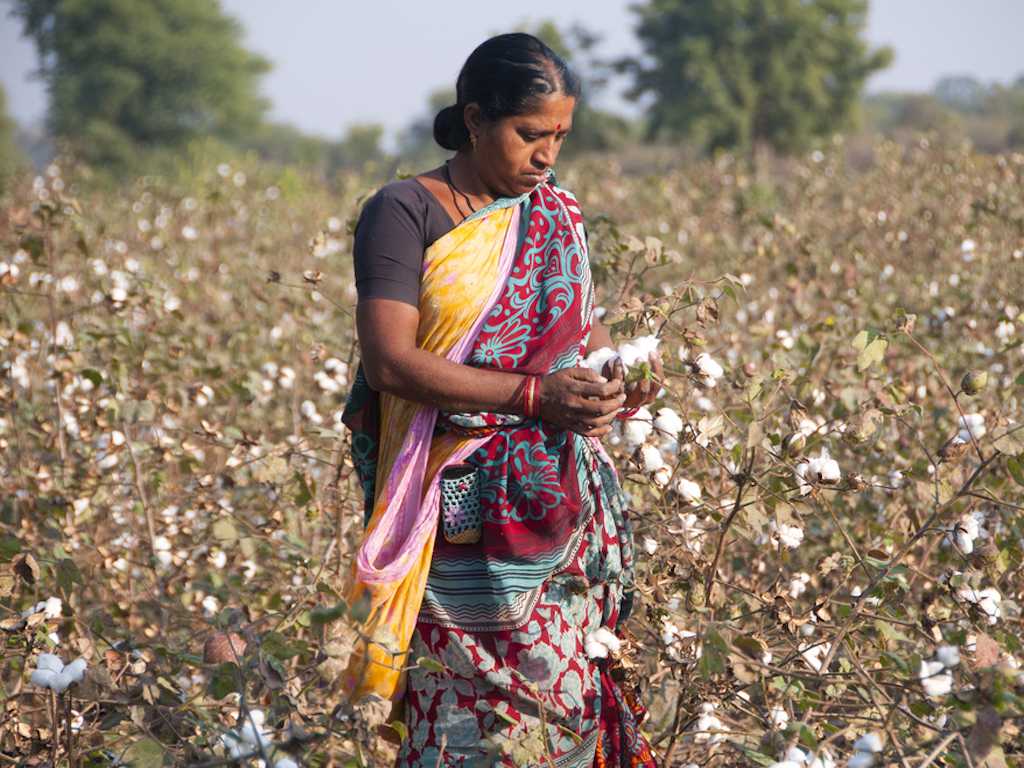Indian Cotton Farmers Defy Monsanto With Native Seeds

Image: Collected
Agrochemical multinational corporation Monsanto is going to be responsible for enormous socioeconomic damage within the Indian farming community since they launched illegal operations of field trials decades back to make inroads in to the market. After years of pressuring farmers to look at a stress of Bt Cotton - which unleashed devastating implications - these farmers, backed by the Indian federal government, are fighting against the organization by time for using native cotton seeds.
In 1997, Monsanto began illegal open field trials of its genetically modified (GMO) Bt cotton strain and released the seeds’ sales in the following year. Unlike native seeds, Bt Cotton is normally a GMO cotton variety that's pest-resistant designed to fight the ballworm. Since 2002, the consumption of Bt Cotton has grown exponentially in India, but Monsanto’s role has been progressively at the mercy of scrutiny since their seeds are expensive, lose effectiveness after one era and later started to be resistant to fighting pink bollworm infestations, resulting in poor yields and major debts incurred by native farmers.
According to the Agricultural Ministry of India, the socioeconomic crisis spurred on simply by Monstanto’s inception in Indian agriculture has resulted in a spate of farmer suicides among 2011 and 2012. To date, there were over 300,000 suicides associated with the damage the American enterprise had left out, from piling debts to the cascading sociocultural impacts of sacrificing livelihoods.
Now, farmers backed simply by the Indian government’s initiatives, happen to be fighting back simply by switching to employing indigenous seeds to grow cotton. Since 2013, authorities have already been encouraging the utilization of native varieties of cotton that are even more suitable for specific local climates and can be preserved and regrown for the next year. Under statewide promotions, Goa, Rajasthan and Sikkim have begun a program to greatly help farmers produce 100% organic and natural agriculture through providing financial assistance to obtain organic and natural fertilisers and bio-pesticides. And these have had an effect: Monsanto’s India revenue have dipped by a lot more than 15%, a loss amounting to US$75 million.
Fibers of Freedom, a great organisation located in Vidharba, the region at the heart of the Bt cotton crisis, in addition has stepped up to greatly help Indian cotton farmers. Their flagship method provides quick support to those indebted farmers, and specifically widows of farmers who have committed suicide to motivate the return to the more sustainable solution of growing organic natural cotton.
“We've created community seed banking institutions with indigenous seeds and helped farmers go organic and natural. No GMO seeds, no personal debt, no suicides,” explained Fibers of Independence founder Vandana Shiva.
The adoption of organic and natural agriculture would additionally bring advantages to our environment amid our planet’s current climate crisis. According to a recently available meta-examination by Dutch researchers at the University of Twente, organic and natural agriculture could hold the key to create progress on as many as 8 out of your 17 US Sustainable Development Goals (SDGs). Among various other targets, organic and natural farming could deliver climate actions targets, protect biodiversity, bring clean water for all and support accomplish zero hunger. With Asia-Pacific lagging behind on SDG improvement, the move that Indian farmers are making from Bt cotton could bring about a host of other confident impacts along with alleviating the problems the city has faced due to the GMO crop.
Source: https://www.greenqueen.com.hk